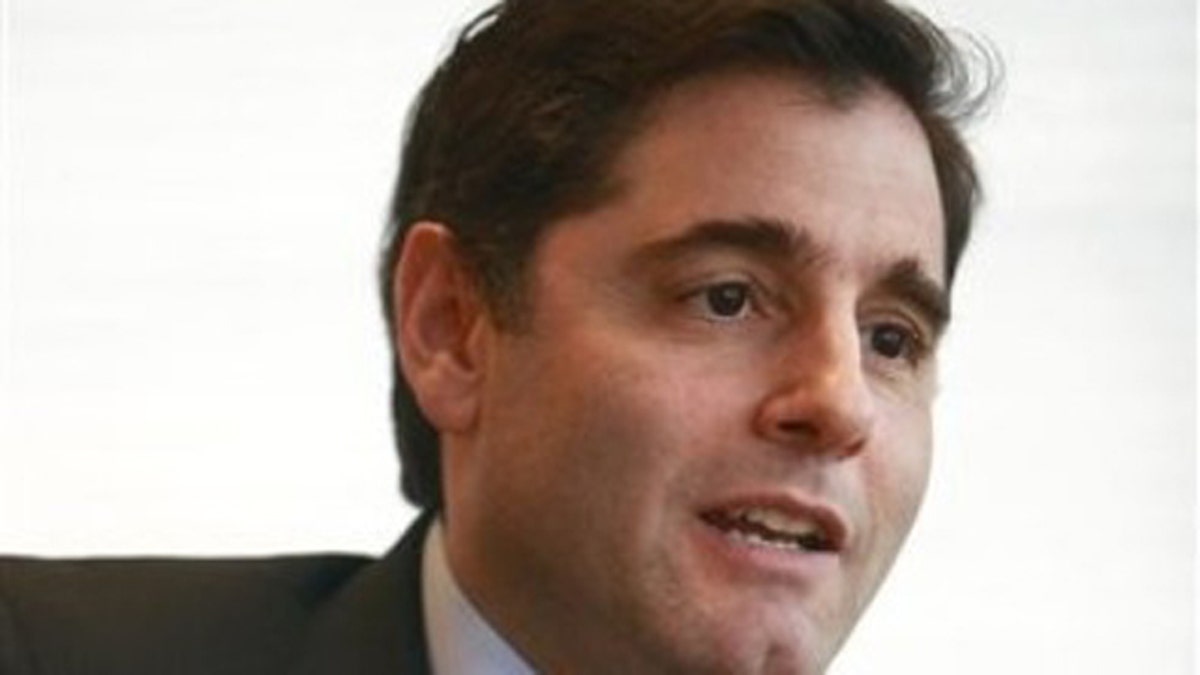
FCC Chairman Julius Genachowski (AP)
Under GOP pressure, the Federal Communications Commission has agreed to strike from its books an outdated yet still controversial regulation of political speech on the airwaves known as the Fairness Doctrine.
FCC Chairman Julius Genachowski said in a letter to a House Republican leader this week that the agency's effort to identify and eliminate "antiquated and outmoded rules that unnecessarily burden business, stifle investment and innovation, or confuse consumers and licensees" will include a recommendation to delete the Fairness Doctrine.
"I fully support deleting the Fairness Doctrine and related provisions from the Code of Federal Regulations, so that there can be no mistake that what has been a dead letter is truly dead," Genachowski wrote to Rep. Fred. Upton, chairman of the House Committee on Energy and Commerce. "I look forward to effectuating this change when acting on the staff's recommendations and anticipate that the process can be completed in the near future."
The Fairness Doctrine has been on the books since 1949. The regulation sought to ensure that discussion over the airwaves of controversial issues did not exclude any particular point of view by threatening to strip the licenses of broadcasters who provide diverse opinions. At the time, only 2,881 radio stations existed, compared with roughly 14,000 today.
The regulation was abolished in the 1980s, but the doctrine is still technically on the books. Upton and Rep. Greg Walden, chairman of the subcommittee on communications, applauded the news that it would be eliminated.
"We are heartened by your continued opposition to the Fairness Doctrine because of its chilling effects on free speech and the free flow of ideas," Upton and Walden said in a joint statement. But they wrote back to Genachowski Wednesday asking him when the regulation will be eliminated and whether he has the support of his fellow commissioners.
In an email to FoxNews.com, a spokesman for Genachowski would not say when the doctrine will be taken off the books and deferred to the other commissioners for their take.
Genachowski's letter was in response to a request from Upton and Walden last month to remove the regulation from the books. Despite the White House's and FCC's repeated statements that there were no plans to reinstate the regulation, Republicans have sought to make sure it never becomes a possibility.
Since taking over the House this year, Republicans have vowed to bury the regulation once and for all and introduced a bill that would have prevented the FCC from reinstating it. The bill, the Broadcaster Freedom Act, is under review in Upton's committee.
The Supreme Court in 1969 upheld the constitutionality of the regulation largely on the grounds that there were so few stations at the time. But the FCC abolished the doctrine in 1987, casting its requirement that broadcasters devote equal time to all points of view an unconstitutional abridgement of free speech. Rush Limbaugh debuted on the nation's airwaves the following year, and conservatives have dominated talk radio ever since.
But talks of reinstating the doctrine never quite went away. As recently as January, when six people died and 13 were wounded in Arizona's mass shooting, including Rep. Gabrielle Giffords, Rep. James Clyburn, the No. 3 Democrat in the House, called for the reinstatement of the Fairness Doctrine.
"Free speech is as free speech does," Clyburn told a local newspaper. "You cannot yell 'fire' in a crowded theater and call it free speech. And some of what I hear, and [what] is being called free speech, is worse than that."
But FCC Commissioner Mignon Clyburn – the congressman's daughter – said she opposes the regulation.












































